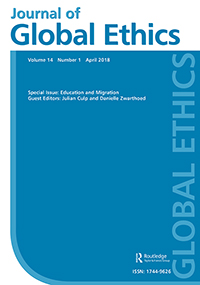By Julian Culp

The central aim of Peter Hägel’s Billionaires in World Politics is to challenge the assumption that private individuals lack agency and power in world politics – an assumption that is widely shared in the field of International Relations. Hägel’s methodological strategy to achieve this aim is twofold. First, he concentrates on minutest biographical aspects of billionaires to lay bare the idiosyncrasy of their choices, and to falsify, thus, structuralist assumptions of how individual agency is undermined by factors such as class, roles, or fields. Second, Hägel engages in counter-factual reasoning to support the claim that these individual decisions end up having a real impact on public affairs abroad. This impact is difficult to overestimate given that, as Hägel reveals, billionaires have affected a whole array of political issues, including Brexit, climate change policy, democratic development in Eastern Europe, global health policy, the Israeli-Palestine conflict, and the war in Iraq.
Published:
2022
DOI:
doi.org/10.1080/17449626.2022.2092194
Online available:
www.tandfonline.com